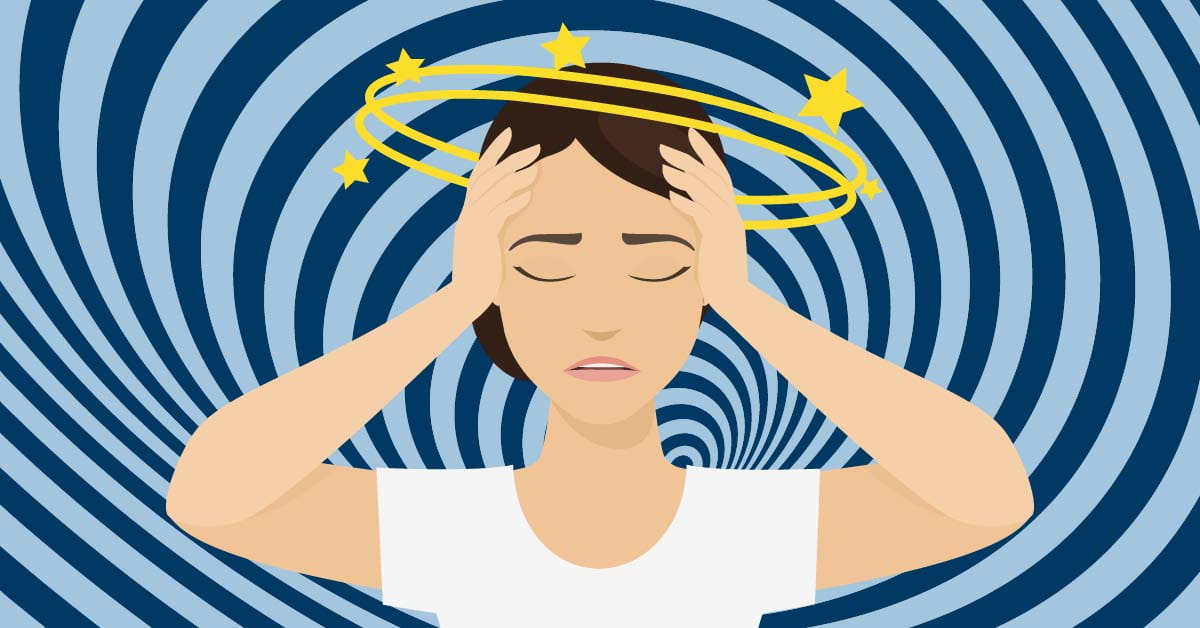Vertigo R42
ICD-10-CM Diagnosis Code R42Dizziness and giddiness
- 201620172018201920202021Billable/Specific Code
Type 1 Excludes- vertiginous syndromes (H81.-)
- vertigo from infrasound (T75.23)
- auditory - see Vertigo, aural
- aural H81.31-ICD-10-CM Diagnosis Code H81.31-
Aural vertigo
- 201620172018201920202021Non-Billable/Non-Specific Code
- benign paroxysmal H81.1- (positional)ICD-10-CM Diagnosis Code H81.1-
Benign paroxysmal vertigo
- 201620172018201920202021Non-Billable/Non-Specific Code
- central H81.4 (origin)ICD-10-CM Diagnosis Code H81.4
Vertigo of central origin
- 20162017201820192020 - Converted to Parent Code2021Billable/Specific Code
- cerebral H81.4
Vertigo of central origin
- 20162017201820192020 - Converted to Parent Code2021Billable/Specific Code
- Dix and Hallpike (epidemic) - see Neuronitis, vestibular
- due to infrasound T75.23
Vertigo from infrasound
- 201620172018201920202021Non-Billable/Non-Specific Code
- epidemic A88.1
Epidemic vertigo
- 201620172018201920202021Billable/Specific Code
- Dix and Hallpike - see Neuronitis, vestibular
- Pedersen's - see Neuronitis, vestibular
- vestibular neuronitis - see Neuronitis, vestibular
- hysterical F44.89ICD-10-CM Diagnosis Code F44.89
Other dissociative and conversion disorders
- 201620172018201920202021Billable/Specific Code
Applicable To- Ganser's syndrome
- Psychogenic confusion
- Psychogenic twilight state
- Trance and possession disorders
- infrasound T75.23ICD-10-CM Diagnosis Code T75.23
Vertigo from infrasound
- 201620172018201920202021Non-Billable/Non-Specific Code
- labyrinthine H81.0
Ménière's disease
- 201620172018201920202021Non-Billable/Non-Specific Code
Applicable To- Labyrinthine hydrops
- Ménière's syndrome or vertigo
- laryngeal R05ICD-10-CM Diagnosis Code R05
Cough
- 201620172018201920202021Billable/Specific Code
Type 1 Excludes- cough with hemorrhage (R04.2)
- smoker's cough (J41.0)
- malignant positional H81.4ICD-10-CM Diagnosis Code H81.4
Vertigo of central origin
- 20162017201820192020 - Converted to Parent Code2021Billable/Specific Code
- Ménière's H81.0
Ménière's disease
- 201620172018201920202021Non-Billable/Non-Specific Code
Applicable To- Labyrinthine hydrops
- Ménière's syndrome or vertigo
- menopausal N95.1ICD-10-CM Diagnosis Code N95.1
Menopausal and female climacteric states
- 201620172018201920202021Billable/Specific Code
Applicable To- Symptoms such as flushing, sleeplessness, headache, lack of concentration, associated with natural (age-related) menopause
Type 1 Excludes- asymptomatic menopausal state (Z78.0)
- symptoms associated with artificial menopause (E89.41)
- symptoms associated with premature menopause (E28.310)
- otogenic - see Vertigo, aural
- paroxysmal positional, benign - see Vertigo, benign paroxysmal
- Pedersen's (epidemic) - see Neuronitis, vestibular
- peripheral NEC H81.39-
Other peripheral vertigo
- 201620172018201920202021Non-Billable/Non-Specific Code
Applicable To- Lermoyez' syndrome
- Otogenic vertigo
- Peripheral vertigo NOS
- positional
- benign paroxysmal - see Vertigo, benign paroxysmal
- malignant H81.4ICD-10-CM Diagnosis Code H81.4
Vertigo of central origin
- 20162017201820192020 - Converted to Parent Code2021Billable/Specific Code

Vertigo is the sense of the world spinning, rotating, or rocking that is experienced even when a person is holding perfectly still. Some patients use the term vertigo interchangeably with dizziness to describe a variety of symptoms, ranging from balance disorders and difficulty with walking to motion sickness or lightheadedness. New app store download. Mac newest. Mac for laptop.
Vertigo Mayo Clinic
Peripheral vertigo is caused by a problem in the inner ear. Central vertigo is caused by a medical condition affecting the area of the brain that controls balance and spatial awareness. While a cause of vertigo can sometimes be identified, doctors cannot always determine exactly why it occurs. Peripheral Vertigo. Benign paroxysmal positional vertigo (BPPV) is the most common of the vestibular disorders and is easily treated. This condition can affect people of all ages, but is most common in people over the age of 60. BPPV symptoms include episodic vertigo when your head is tilted up, or when you are turning over in bed or maneuvering out of bed. Drugs used to treat Vertigo The following list of medications are in some way related to, or used in the treatment of this condition. Select drug class All drug classes antihistamines (5) phenothiazine antiemetics (5) anticholinergic antiemetics (5). Feb 17, 2021 Vertigo is the sense of the world spinning, rotating, or rocking that is experienced even when a person is holding perfectly still. Some patients use the term vertigo interchangeably with dizziness to describe a variety of symptoms, ranging from balance disorders and difficulty with walking to motion sickness or lightheadedness.
